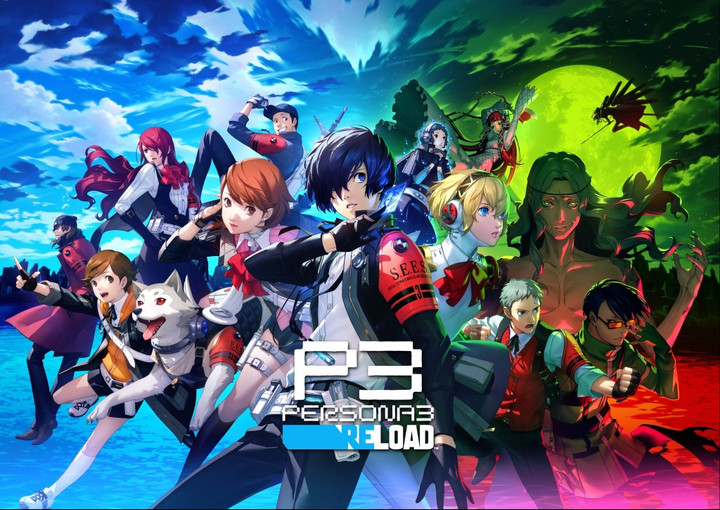Persona 3 Reload is the most flawed modern mainline Persona game to date. While its snappy combat, catchy score, and refreshing art style make for a decent experience overall, the disjointed narrative and shallow character developments make its 75-hour-long campaign significantly less captivating than I had hoped for.
Aside from some technical advancements, Reload feels like an immensely dated experience that, for some unfathomable reason, doesn't draw much from its siblings that took this franchise to new heights.
With that said, there are a bunch of memorable moments that should induce a heavy dose of nostalgia, especially for the people who grew up with this game. However, if you expect anything more from Persona 3 Reload, you will probably be disappointed.
Disclaimer: This review is based solely on my time with Persona 3 Reload. I haven't played the original, as well as its many variants. However, I have played Persona 4 and Persona 5, including all their spinoffs. If you're someone who's hopping into Persona 3 Reload after playing Persona 5 or Persona 4, this review may seem more insightful to you than someone who has spent plentiful time with the original Persona 3 and Persona 3 FES.
Persona 3 Reload Overview
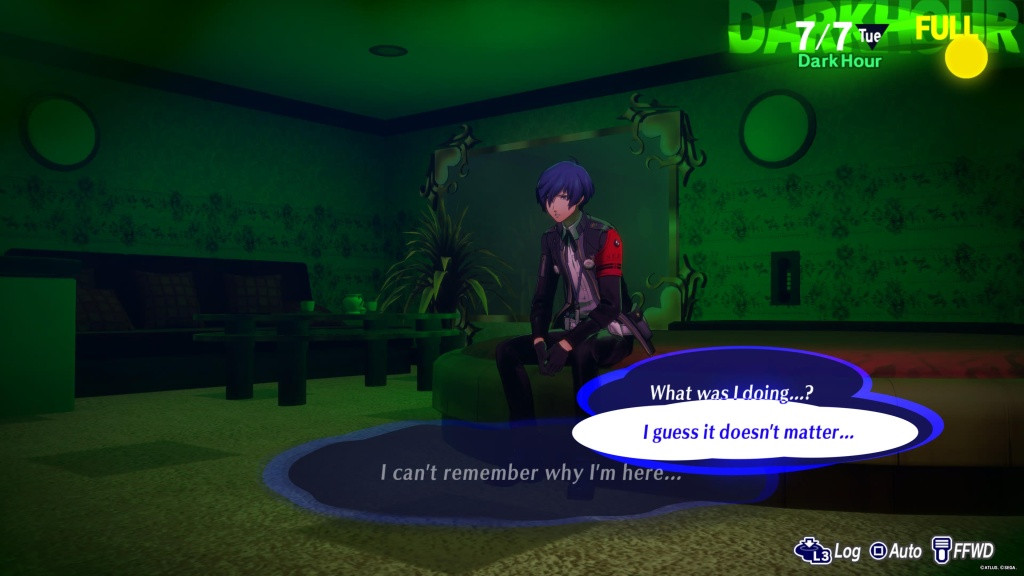
Persona 3 Reload is a game about accepting and understanding death. It's a theme that lurks within every facet of this experience. It sneers from the game's blue-colored UI and looms over the shadow of every main character. To that end, Persona 3 is a much more gritty experience than Persona 4 and Persona 5.
You play as the game's silent protagonist, who returns to Tatsumi Port Island, a closed-off seaside town in Japan, ten years after the untimely death of his parents, to start his second year of high school.
Not long after your arrival, you're sucked into the Dark Hour, a gruesome time period that exists between one day and the next.
During the Dark Hour, the regular humans turn into coffins while otherworldly Shadows roam the streets, and in Tartarus, the mysterious towering structure in the middle of the Tatsumi Port Island, only people with special Persona-summoning abilities like yourself can experience the Dark Hour and fight these Shadows.
Soon after that harrowing opening, you're awakened to your Persona and join other Persona users residing in the Iwatodai Dorm, your home for the next year, to explore the Dark Hour and fight Shadows in Tartarus.
Persona 3 is a part social simulator and part dungeon crawler; a first of its kind, whose ideas paved the way for subsequent mainline Persona games.
Persona 3 Reload is a refined but underwhelming dive into that foundation. The roughly 75-80 hours you spend in Persona 3 Reload involves exploring Tartarus, indulging in turn-based combat encounters with Shadows, and managing your day-to-day activities like attending classes, doing part-time jobs, hanging out with friends, and increasing your social links with a wide array of unique characters.
Persona 3 Reload Story & Characters
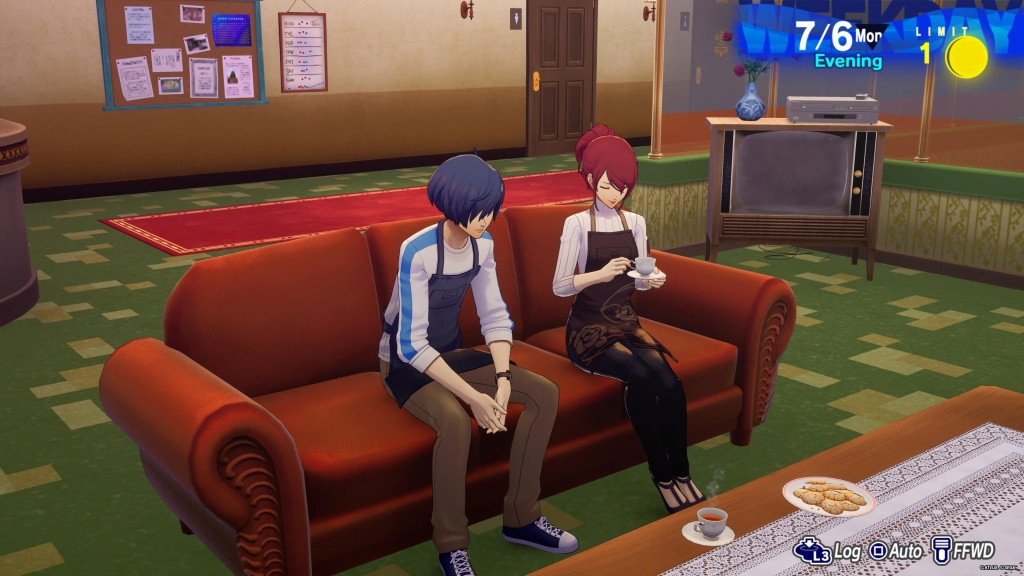
Persona 3 Reload's story feels more edgy and grounded in comparison to Persona 4 and Persona 5. Unlike those games, the focus isn't on the societal issues of contemporary Japan but instead on the origins of the otherwordly Shadows and Tartarus. It's a refreshing shift that makes sense since the original Persona 3 was, after all, the beginning of a new era for Persona games.
The overarching narrative is very Resident Evil-esque, which begins with a failed lab experiment and accumulates in an end-of-the-world scenario. It's a more believable premise than Persona 5 and Persona 4, though not as intriguing, mainly because the execution doesn't quite hit the mark.
Persona 3 Reload features the most disjointed and unevenly portrayed story across all modern mainline Persona games. These titles tend to start slow, but Reload's first 15-20 hours are an absolute slog, with little to no character development across the entire main cast and no real incentive to explore Tartarus.
Tartarus is more reminiscent of Persona 5's Mementos, a similarly painstakingly long monotonous dungeon where you fight endless Shadow monsters. However, unlike the Mementos, Tartarus isn't an optional dungeon, and you will have to explore all its 264 floors by the end of the story.
There are no Palaces in Persona 3 Reload, so you're stuck exploring the endless similarly looking areas in Tartarus. It isn't all bad, and I'll get to that later, but it's astonishing to see how little effort Atlus put into making Tartarus more engaging to explore.
One of the most jarring issues with Persona 3 Reload isn't its main dungeon, however, but how little time it spends building the relationship of its main trio — Junpei, Yukari, and the protagonist.
In Persona 5, Ann, Ryuji, and the protagonist have incredible chemistry from the get-go, and it's fulfilling to see their relationship evolve throughout the game. Likewise, in Persona 4, Chie, Yosuke, and the protagonist hit off immediately, and by the end, you have formed this irreplaceable bond with both of them.
That doesn't happen here in Persona 3 Reload. Junpei and Yukari both get their fair share of screen time in the latter half of the story, but it's quite difficult to empathize with their situations as the game doesn't spend the time to build these relations.
It also makes no sense for Junpei to not have a social link in Persona 3 Reload despite having one in Persona 3 FES. It's a shame because Junpei is not just integral to the main story, but he's also supposed to be your best pal. If only Persona 3 Reload had taken its time to nurture Junpei and Yukari's characters some of the late-game moments would have hit much harder.
In general, the SEES doesn't feel like a close-knit group like Phantom Thieves and the Investigation Team. It makes sense, partly because SEES is made up of a very diverse group of characters, such as the elegant robot companion Aigis and the endearing Persona-wielding dog Koromaru. However, the main reason for this disconnection is because Persona 3 Reload doesn't spend enough time exploring the backstories of its main characters. Sure, there are heavy moments involving each SEES member in the story, but just like Junpei and Yukari, they don't hit as hard as intended because the narrative is structured in a way that doesn't really make you feel connected to them.
This inconsistent approach to character development plagues the entire main cast of Persona 3 Reload, including its villains, and deeply hurts and undermines some of the pivotal moments of the story.
It also doesn't help that there are no Persona-awakening moments, as almost every main character has already gotten theirs by the time you meet them, while the rest awaken to their power in the background, so you never get to experience the raw emotion of someone crying and caving into their inner-self except through a brief spotlight when they use their Persona for the first time in combat.
With all that said, what little interactions you have with the SEES members in the dorm are enjoyable and easily a highlight of the game. Whether it's watching a hard-boiled detective movie with Amada or having a heart-to-heart with Aigis on a night walk with Koromaru, these intimate moments are wholesome, and I wish there were more of these throughout the story.
Moments like these did allow me to soften up to the main cast by the time the credits rolled, but it's hard not to imagine how impactful the entire experience would have been if these characters had been fully fleshed out.
Experiencing Persona 3 Reload's story gave me a newfound respect for the narrative structure of subsequent Persona titles. Persona 5 may be Atlus' magnum opus, but it wouldn't have been what it is without the story and gameplay foundations of Persona 3.
Looking at it this way does make you appreciate Persona 3 Reload for what it is. I also understand that Atlus might not have wanted to change too much of the narrative and character arcs to respect the original.
However, my biggest criticism about Reload is that from the beginning, it has been marketed as a "reimagining" of Persona 3 and something that's supposed to feel like a new mainline entry in the series rather than a simple remake with a few touchups here and there. It's clearly the latter, and if you go in expecting the former, it's hard not to be disappointed.
Persona 3 Reload Music & Visuals
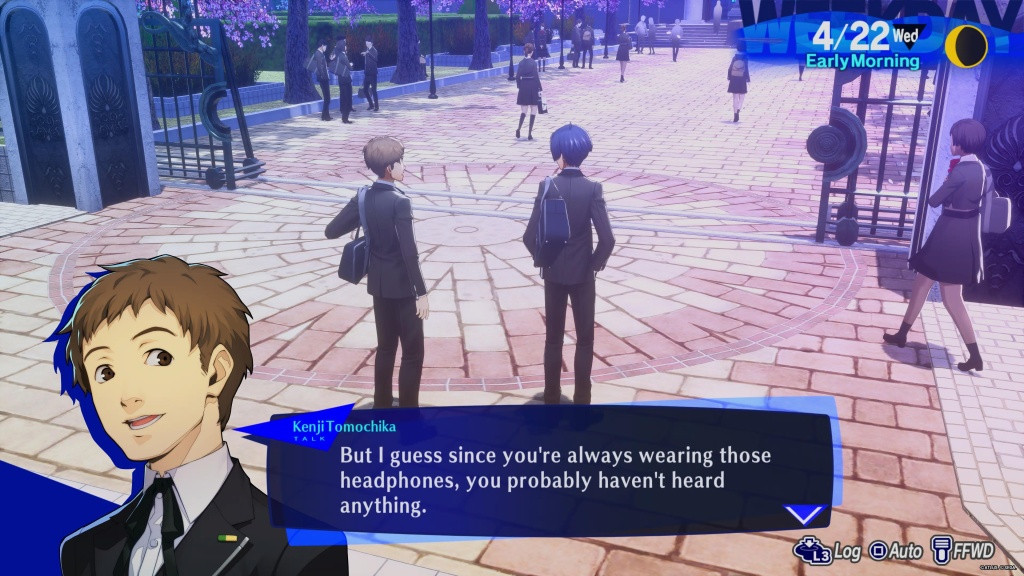
Persona 3 Reload is Atlus' prettiest game to date. It carries over the evocative stylization of Catherine and Persona 5 and puts its own spin on it.
Atlus' art team is simply unbeatable, especially when it comes to the use of colors, and Persona 3 Reload is another incredible offspring that's pretty to the eyes.
There's a lot of blue infused with green and sometimes pink, especially in areas like Tartarus, and with the game's significantly improved lighting, everything looks downright beautiful. During Spring, you can see the cherry blossoms fluttering in the distance from your classroom's window. Tiny details like these might not mean much to someone new to the Persona games, but I can imagine how mind-boggling it might be for a returning player to see Tatsumi Port Island in this new light.
The texture quality of the characters is also impeccable, at least for the main cast. I won't say they look as great as their thumbnail counterparts, but they at least have the look and feel of an actual anime-style character. The clothes and hair look more detailed than ever, and you can even notice the creases in the protagonist's attire.
I was also surprised to see how much Atlus has improved the shadows and reflections of all objects in Persona 3 Reload. It's a massive improvement from Persona 5 Royal. One of the silliest things I noticed was the protagonist's reflection in every school mirror. It's nice to see Atlus pay so much attention to the game's graphics. All of this got me really excited for the next mainline Persona game.
But an area where Persona 3 Reload shines above everything else is its music. I'm a sucker for Persona music, and I held off from listening to any Persona 3 tracks until I played Persona 3 Reload, and it was definitely worth it.
From the new opening, "Full Moon Full Life," to the classics like "Deep Breath Deep Breath," everything hits hard and good. There's nothing more euphoric in a Persona game than when you're fighting a vicious Shadow and the most upbeat and feel-good song comes up. Both the ambient tracks and the battle scores in Persona 3 Reload are brilliant compositions (except the Tartarus one), and they don't get old even after listening to them for 80 hours.
Strangely enough, the music in Persona games is not something that has evolved throughout the series but is something that has always been flawless, and Persona 3 hip-hop rap-rock score is at the very top of that bar alongside Persona 4's fusion pop, and Persona 5's acid jazz.
I can only imagine how influential Persona 3's soundtrack must have been back in the day. While I'm late to the party, I can confidently say that Reload's revamped album will be my jam for the next few years, at least until the next Persona game comes around.
Persona 3 Reload Gameplay
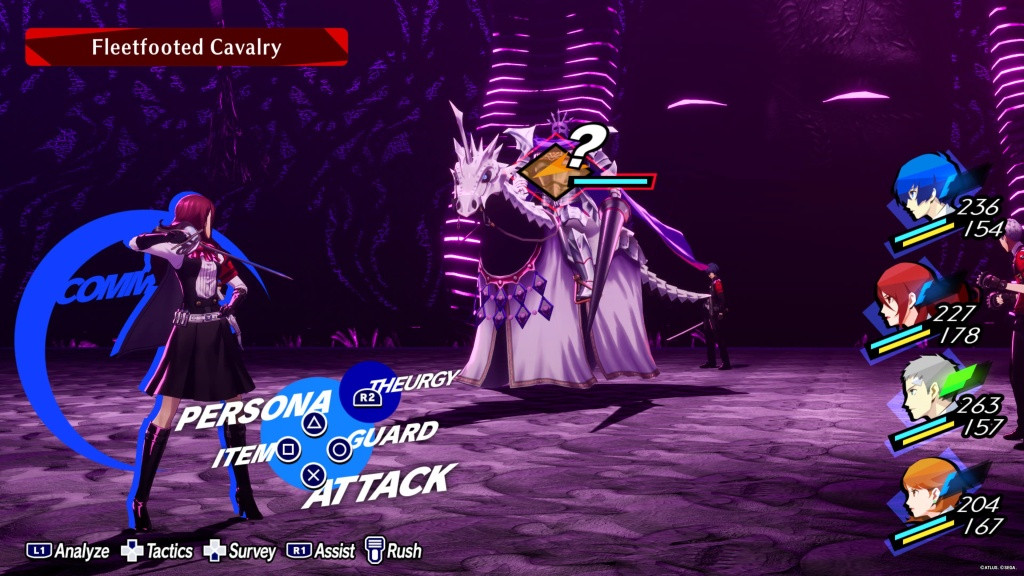
Persona 3 Reload plays dangerously similarly to Persona 5, which isn't necessarily a bad thing. Thankfully there are a few subtle improvements here and there, which I'll get to in a moment.
During the day, you attend classes where the teacher occasionally asks you questions. After school, you are free to spend the evening however you please. These include things like spending time with various characters, playing arcade games in the mall, or studying in the library. Indulging in almost every activity fast-forwards the time and increases one of your three social stats: Academics, Courage, and Charm.
Both Persona 4 and 5 featured five social stats, so I was a bit surprised and disappointed to know that there were only three in Persona 3 Reload, which I maxed out by the start of September in-game. This was one of the areas where I think Atlus could have improvised but for some reason, decided against it.
Once I had maxed out all my social stats, there wasn't much incentive to pursue anything except spending time with characters to increase my social links.
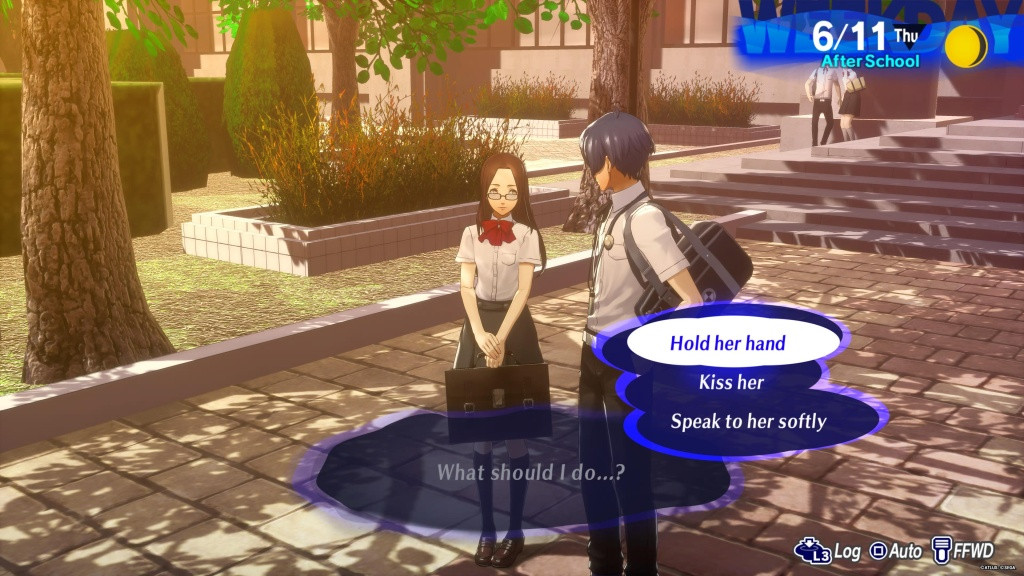
Speaking of social links, while a few piqued my interest, such as the MMO player Maya, the old monk Mutatsu, and the foreign exchange student Bebe, most followed generic anime tropes, which have been explored countless times through the medium.
While none of them were particularly bad, I never felt motivated to interact with these characters. It's also absurd how Persona 3 Reload has three social links associated with track team members and none with other prominent school clubs like music and literature. I expected these social links to be a reflection of the lifestyle and culture of Japan from 2009, but they felt pretty barebone.
With Yukari's social link not being available until halfway through the story and Junpei being a largely unlikeable character, I felt incredibly lonely navigating the first 15-20 hours of Persona 3, and that's saying something about a game all about forming connections.
In addition to its music and visuals, what really clicked with me in Persona 3 Reload is its combat. As mentioned previously, it feels quite similar to Persona 5, but with subtle improvements that make a difference.
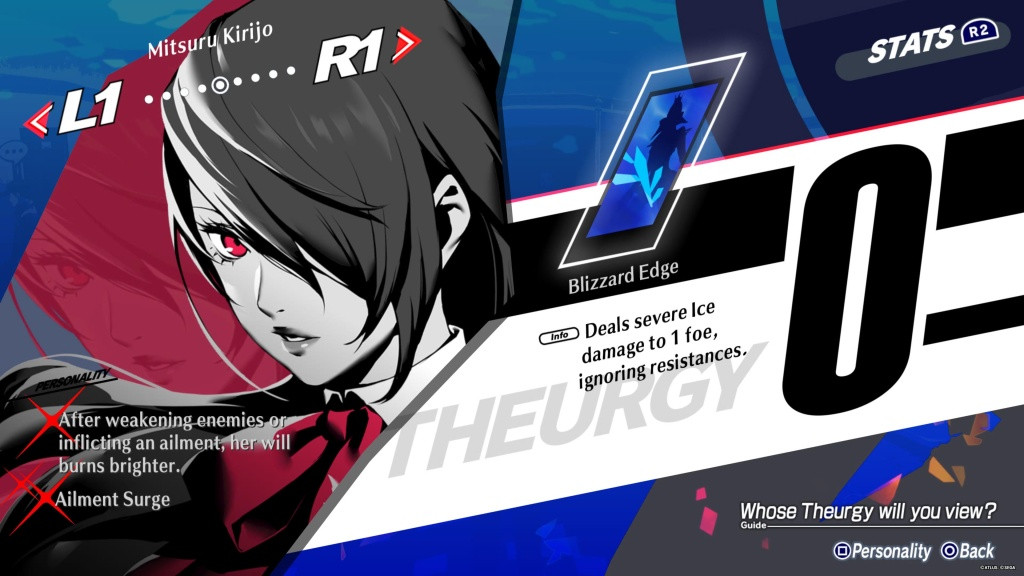
For instance, every character can now use an ultimate ability called Theurgy. These have stylish animations, not as fancy as something you would find in Honkai: Star Rail, but still fascinating to look at. All Theurgy abilities ignore enemies' resistances, so you can never waste one of these, which is a win in my book.
Giving each character an ultimate ability to use in a turn-based game isn't revolutionary, but how you actually fill up these Theurgy meters is.
Each character's Theurgy meter fills up differently, depending on their inner psyche. For instance, Yukari's Theurgy meter increases every time she heals or provides support to other characters, as it's in her nature to look out for others. Similarly, Amada's Theurgy meter rises every time his SP meter goes below 50%, which I'm sure stems from his love for coffee.
Having such a feature allows you to approach encounters more tactfully and plays an important factor in deciding how and when to use a particular party member.
Each character also has characteristics that grant them new passive abilities in combat. You can unlock them by spending time with them in the dorm. I only wish there were more characteristics to unlock per character.
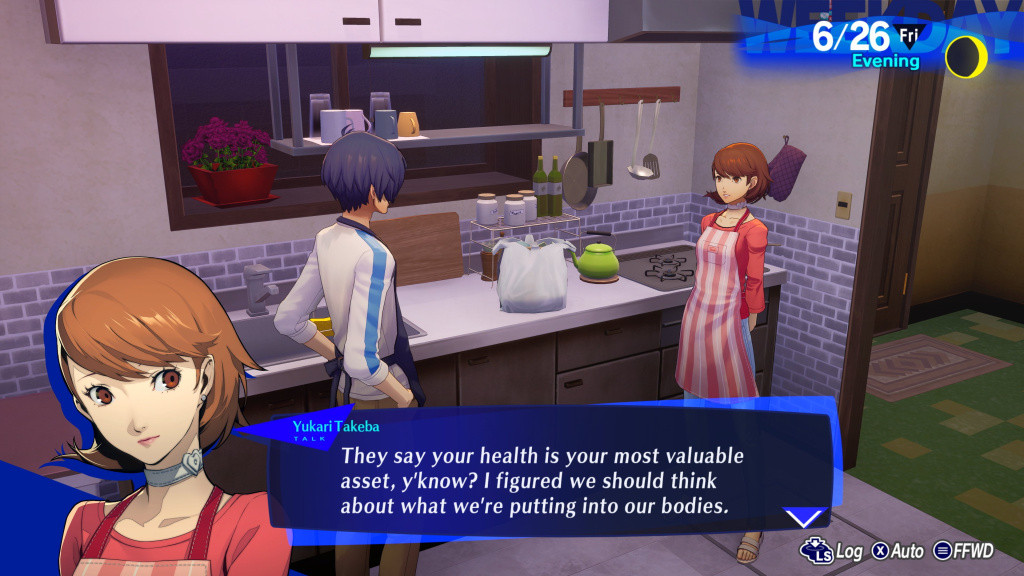
It would be blasphemy to use the words Tartarus and fun in the same sentence, but I honestly enjoyed diving into it every now and then because the combat felt so snappy and satisfying. I was always eager to fight the next gate-keeper and the Monad boss (sub-areas within the dungeon) and try out the new Personas I have fused.
Persona Fusion works pretty much the same way as it was in Persona 5. I recently learned that Fusion Search wasn't an option in the original game. I'm glad Atlus changed that in Reload and took the Persona 5 route, as Fusion Search is much more convenient to use than the Normal Fusion process.
Another notable change here is that registering Personas now directly influences your character's abilities. In Reload, registering Personas in Compendium will boost the protagonist's characteristics, which in turn will unlock more passive buffs. It's a great way to encourage new players to explore Persona Fusion, especially since it's essential to the overall gameplay experience.
Speaking of Personas, Persona 3 Reload easily has the best animation for summoning your Personas. Witnessing a character put a gun (evoker) to their head and then shooting themselves while shouting "Persona" never gets old, and the glass-shattering sound that follows the animation is inexplicably reinvigorating to experience every single time.

 No ads, our video library,
No ads, our video library,
